Black Chickpeas Benefits: 19 Health, Skin, And Hair Perks
Learn how this amazing protein source can contribute to your overall health.
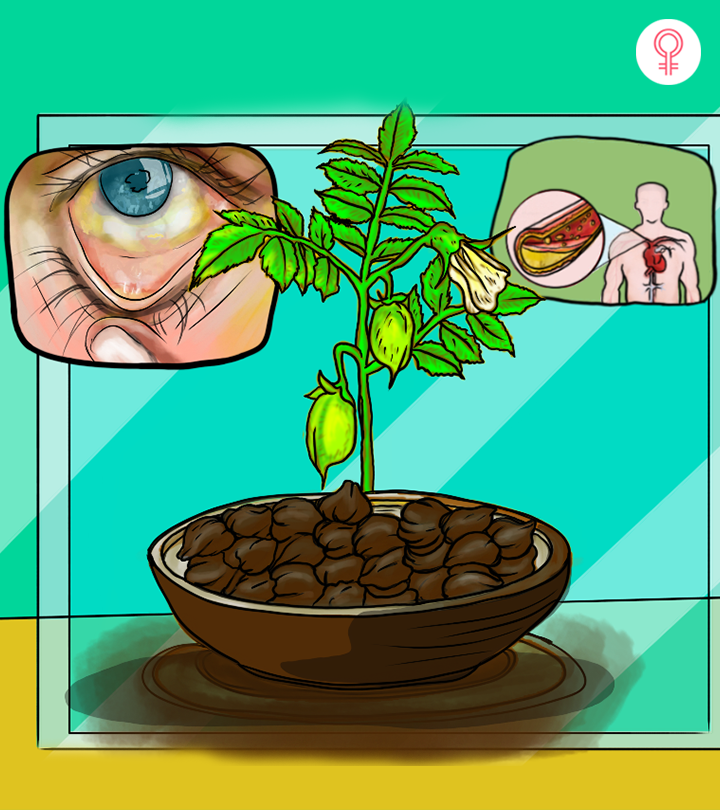
Image: StyleCraze Design Team
If you are here wondering about black chickpeas benefits, we got you covered! Chickpeas are popular worldwide for their high protein content and their high nutrition content. However, are you aware of the various kinds of chickpeas? Yes, while you must have commonly come across the larger white chickpeas, there is a smaller black chickpea variety as well! Both of these are classified as legumes and belong to the Fabaceae family. While the larger chickpeas are popularly used in various cuisines worldwide, the black chickpeas are more locally found in India (also known as black chana) and Italy, and feature in these cuisines more often! Nutritionally dense, chickpeas make for a healthy diet option for many vegetarians and vegans alike! While the larger light-colored chickpeas have a smooth coat, the smaller darker-colored black chickpeas have a rough covering. The black chickpeas have higher fiber content and low glycemic index, which makes them suitable for diabetes-friendly diets as well. In this article, we learn further about black chana benefits and how you can make the most of them! Read to know more!
A study was conducted to observe the trends and patterns of chickpea consumption among 35,029 US adults. It was found that chickpea consumption increased from 1.9% in 2003–2006 to 4.5% in 2015–2018. Chickpea consumption was high among individuals with higher education (10.2% for college graduates) and physical activity levels ( 7.7% for moderate activity).
 Know Your Ingredient: Black Chickpeas
Know Your Ingredient: Black ChickpeasWhat Is It?
Traditional beans are called desi chana or kala chana in Indian households.
What Are Its Benefits?
May aid in weight loss, support diabetes management, promote hair health, and improves skin health.
Who Can Consume It?
It is safe to consume by all except people who take medications like beta-blockers.
How Often?
It can be consumed daily in moderation.
Caution
Avoid eating raw or improperly cooked chickpeas as they contain toxic substances that might hamper good digestion.
In This Article
Black Chickpeas Nutrition Value
Being low in fat, high in dietary fiber and rich in vitamins and minerals, black chickpeas can indeed be a healthy addition to your diet. Two to three tablespoons of these legumes are equivalent to one portion of the daily recommended five portions of fruits and vegetables. The health benefits of black chickpeas are as follows.
Serving: 100 g (2)
| Calories | 164 | Sodium | 24 mg |
|---|---|---|---|
| Total Fat | 6.04 g | Potassium | 718 mg |
| Saturated | 0.603 g | Total Carbs | 27 g |
| Polyunsaturated | 2.731 g | Dietary Fiber | 12.2 g |
| Monounsaturated | 1.377 g | Sugars | 10.70 g |
| Trans | 0 g | Protein | 20.47 g |
| Cholesterol | 0 mg | ||
| Vitamin A | 1% | Calcium | 5% |
| Vitamin C | 2% | Iron | 16% |
Percent Daily Values are based on a 2000 calorie diet. Your daily values may be higher or lower depending on your calorie needs.
Key Takeaways
- Protein and fiber-rich black chickpeas contain soluble as well as insoluble fat and may aid in weight loss.
- Slow digestion of black chickpeas may result in low blood sugar levels.
- Eating chickpea flour bread daily for two months may help treat ringworm infections.
- Regular consumption of black chickpeas may promote healthy hair and prevent graying.
Health Benefits Of Black Chickpea
Black chickpeas come packed with protein, fiber, and essential vitamins that support overall health. These health advantages are similar to cowpeas benefits, another legume. Here are some ways black chickpeas can benefit your health:
1. Aids In Weight Loss

Inclusion of fiber-rich foods in your diet can greatly contribute to weight loss (3). Black chickpeas are rich in both soluble and insoluble fiber. Soluble fiber facilitates the excretion of bile and ferries by forming a gel-like substance in the digestive tract whereas insoluble fiber prevents constipation and other digestive disorders. Moreover, fiber fills up your stomach, making you feel satiated for longer and curbs hunger cravings. Drinking water boiled with chickpeas helps in reducing appetite. Thus, consuming legumes like black chickpeas can be more effective in weight loss than simply cutting calories.
 Quick Tip
Quick Tip2. Cardiovascular Benefits
Black chickpeas contain a unique combination of antioxidants, anthocyanins, flavonoids, delphindin, cyanidin, and petunidin as well as phytonutrients and ALA that maintain the health of blood vessels and prevent oxidative stress, thereby reducing the risk of heart disease (4). Black chickpeas contain considerable amounts of folate and magnesium. Folate improves heart health by lowering homocysteine levels and thereby thus minimizing the risk of narrowing of arteries by plaque formation, blood clots, heart attacks, and strokes.
3. Lowers Cholesterol
The soluble fiber in black chickpeas binds the bile acids and prevents them from being absorbed by the body, thus reducing cholesterol levels (5). Daily consumption of around ¾ cup of chickpeas helps to decrease LDL cholesterol and total cholesterol triglycerides. Moreover, the dietary fiber of black chickpeas is superior to that found in other foods.
4. Stabilizes Blood Sugar And Low Glycemic Index (GI)
The soluble fiber in black chickpeas controls the absorption and release of blood sugar (6). Moreover, chickpeas have a low glycemic index of 28 to 32 which means that the carbohydrate in them is broken down and digested slowly. This aids in weight management by controlling appetite. The low GI causes blood sugar to rise moderately and slowly leading to lower blood sugar levels. Consuming ½ a cup of black chickpeas a day can lead to better blood sugar control in just a week.
5. Prevention Of Diabetes

As already stated, the carbohydrates in legumes such as black chickpeas are digested slowly, thus reducing blood sugar levels (7). This contributes to insulin resistance, thereby reducing the risk of getting type-2 diabetes.
6. Great Source Of Iron
Being a rich source of iron, black chickpeas can prevent anemia and boost your energy levels (8), (9). This is particularly beneficial for pregnant or lactating women as well as growing children. Iron plays an important role in the formation of hemoglobin by transporting oxygen from the lungs to all body cells and is an important component of enzyme systems for energy production and metabolism. Black beans benefits your health in a similar way, making them a great alternative for your diet.
7. Good Source Of Protein For Vegetarians
Black chickpeas are a good source of plant-based protein for vegetarians. These legumes in combination with whole grain or whole wheat protein, provide significant amounts of protein that are comparable to that of meat and dairy as well as devoid of high calories or saturated fats (10).
8. Beneficial For Women
The phytonutrients called saponins act as antioxidants and anticancer agents to reduce the risk of breast cancer, prevent osteoporosis, and minimize hot flushes in post-menopausal women (11). Eating roasted chickpeas mixed with brown sugar and desi ghee helps in curing leucorrhea. Nutrients such as iron and calcium in chickpeas may improve bone health. Drinking water boiled with chickpeas can prevent miscarriage.
9. Treatment Of Digestive Disorders
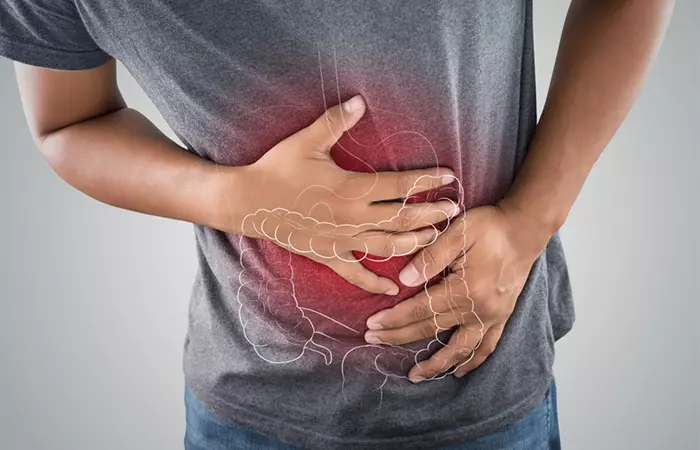
Black chickpeas are rich in dietary fiber, 2/3rd of which comprises insoluble fiber, which is vital for maintaining digestive health. The fiber reduces the risk of painful diverticulitis disease and constipation by reducing the strain on your intestines. In case of dysentery, soak 2 handfuls of chickpea seed coats in 500 ml of water overnight and drink this water after straining, the next morning for relief. For curing constipation, soak chickpeas in water overnight and eat them in the morning after sprinkling ginger powder and caraway seeds (jeera) as well as drink the separated water.
Jordana Tobelem, Registered Dietitian/Nutritionist, says, “Black chickpeas contain both soluble and insoluble fiber, which offer different benefits. Soluble fiber traps toxins, such as cholesterol, in the digestive tract to be excreted. Insoluble fiber helps add bulk to stools and assists in keeping you regular by moving foods through the digestive tract quicker.”
10. Prevention Of Cancer
The soluble fiber contained in black chickpeas reaches the colon where it is broken down by the bacteria into short-chain fatty acids which are absorbed by the colon cells and used for energy. This enables the colon cells to stay healthy and reduces the risk of cancer, particularly colon cancer (12).
 Did You Know?
Did You Know?11. Other Benefits
In case of stones in the kidney or bladder, you can soak a handful of split chickpeas in water overnight and eat the chickpeas with honey the next morning. Jaundice patients can eat a handful of black chickpeas soaked in water along with jaggery (gur) and drink the same water when thirsty for improvement in condition. This water is also effective in preventing frequent vomiting.
According to Jordana Tobelem, Registered Dietitian/Nutritionist, “Black chickpeas do not increase blood pressure. They may help lower blood pressure and reduce the risk of cardiovascular disease. Black chickpeas contain a high amount of potassium, which is helpful in excreting sodium from the body and relaxing the walls of blood vessels.”
Skin Benefits of Black Chickpeas
Black chickpeas are rich in folates, dietary fiber, protein, carbohydrates, copper, amino acids, iron, and phosphorus and are devoid of sodium and cholesterol. They can benefit your skin health in the following ways.
12. Treatment Of Leucoderma
Leucoderma is a disease characterized by white spots on the skin. Those having leucoderma can soak a handful of chickpea seeds along with 10 grams of triphala churan in 125 ml of water for 24 hours and eat them when sprouts appear. Doing this religiously for a few months can be effective in getting rid of white spots.
13. Treatment Of Ringworm Infection

Eating a roti made from black chickpea flour every day for a month or two without salt can cure ringworm infections.
14. Facial Skin Care
Black chickpeas are split with skin removed and ground to make ‘besan’ which is excellent for skincare and is often used in face packs to give you flawless glowing skin.
15. Healing Properties
Paste made from black chickpeas has great healing and anti-inflammatory properties. Applying it along with sandalwood paste can remove acne and pimple scars, and treat sunburns and various other skin inflammations. Apply equal quantities of both the pastes on the scars, leave overnight, and wash off the next morning with lukewarm water to enhance your skin health.
Hair Benefits Of Black Chickpeas
We all long for healthy and lustrous hair. Unfortunately, our unhealthy lifestyle as well as exposure to environmental pollution and harmful chemicals leave our hair damaged and cause several hair problems. Being a healthy food, black chickpeas can be beneficial for your hair in a number of ways.
16. Promotes Hair Growth
Black chickpeas contain vitamin B6 and zinc. Both these minerals play an important role in building up the protein in hair, thereby strengthening your hair follicles and promoting hair growth.
17. Combats Hair Loss
The combination of vitamin A and zinc in black chickpeas are vital for hair health and deficiency of any one of these in the diet can cause dandruff and hair loss.
18. Treatment Of Dandruff
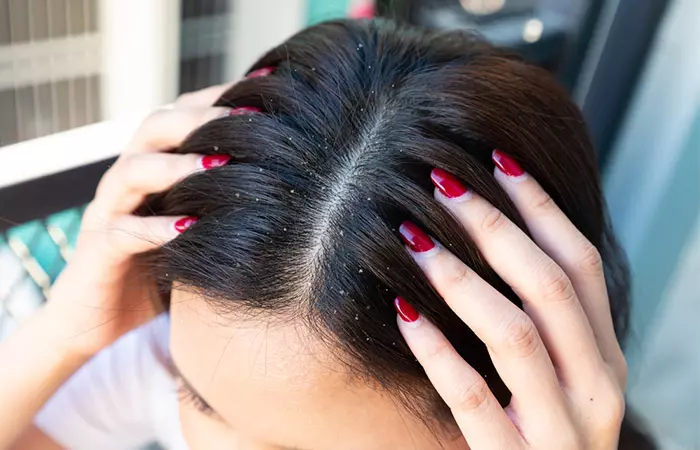
In order to get rid of dandruff, you can mix 4 tablespoons of black chickpea flour in around 250 ml water and massage your hair with it for a couple of minutes before washing.
19. Prevents Graying Of Hair
Black chickpeas are loaded with protein and manganese. Manganese prevents your hair from changing pigmentation i.e. graying of hair.
You can reap the above benefits by incorporating black chickpeas into your diet. Here are two tasty and simple recipes that you can follow.
Black Chickpeas Recipes
1. Black Chickpea Salad
Ingredients
- 1 cup of black chickpeas (soaked overnight)
- 1 cucumber
- 2 tomatoes
- 1 onion
- Fresh cilantro (coriander leaves)
- 1 tablespoon of freshly squeezed lemon juice
- 1 tablespoon of olive oil
- Salt to taste
- Black pepper to taste
- Spices of your choice
How To Prepare
- Boil the soaked chickpeas until tender.
- Dice all the vegetables and then mix them with chickpeas.
- Add fresh cilantro on top.
- Whisk lemon juice, olive oil, salt, pepper, and your choice of spices like paprika, cumin, or chili powder in another bowl.
- Pour this dressing over the salad, toss, and chill.
2. Spicy Black Chickpea Curry
Ingredients
- 1 cup black chickpeas (soaked overnight)
- 1 onion (finely chopped)
- 2 tomatoes (pureed)
- 2 green chilies
- 1 teaspoon of ginger-garlic paste
- 1 teaspoon of cumin seeds
- 1 teaspoon of turmeric powder
- 1 teaspoon of red chili powder
- 1 teaspoon of garam masala
- 2 tablespoons of oil
- Salt to taste
- Fresh cilantro (for garnish)
How To Prepare
- Boil soaked chickpeas in salted water until soft.
- Heat oil in a pan, and add cumin seeds.
- Add onions, cook until golden, then add ginger-garlic paste.
- Now, add tomato puree and spices (turmeric, red chili powder, garam masala), and cook until oil separates.
- Add boiled chickpeas, mix well, and simmer for 10 minutes.
- Garnish with fresh cilantro and serve hot with rice or roti.
Infographic: Reasons To Consume Black Chickpeas
India is the largest producer of black chickpeas and the demand keeps increasing. Chickpeas are a source of healthy carbohydrates, fiber, and proteins which make them a healthy snack. Their rich nutritious value makes them useful in many health conditions.
Checkout the infographic below to understand why you should consume black chickpeas.
Some thing wrong with infographic shortcode. please verify shortcode syntax
Black chickpeas are a healthy addition to your vegetarian diet due to their high protein and fiber content. They are rich in phytonutrients and antioxidants and are gluten-free and low in fat. Black chickpeas may help reduce appetite, aid in weight loss, reduce the risk of heart disease, lower bad cholesterol levels, stabilize blood glucose, and help treat diabetes. They also help treat leucoderma, ringworm infection, promote hair growth, and prevent hair graying. Include them in your daily diet and enjoy their benefits.
Frequently Asked Questions
How to prepare black chickpeas for optimal health benefits?
You can soak black chickpeas overnight and consume them raw the next morning. You may also consider sprouting them to boost their nutritional value. These are the healthiest way to eat black chickpeas. Also, you can boil them in water until soft, add a dash of lime juice and sea salt to the boiled chickpeas, and consume them.
Which chickpeas are better – black or white?
Black peas offer more nutritional benefits than white chickpeas. Black chickpeas also contain more fiber and have a lower glycemic index.
Can I eat chickpeas every day?
While eating chickpeas is healthy, eating them every day may cause indigestion.
Do black chickpeas cause gas?
Yes. The excess intake of black chickpeas may cause gas due to their high fiber content.
Illustration: Amazing Benefits and Uses Of Black Chickpeas (Kala Chana) For Skin, Hair and Health
_for_skin_hair_and_health_illustration.jpg.webp)
Image: Stable Diffusion/StyleCraze Design Team
Discover the nutrition facts and health benefits of black chickpeas/kala chana with this amazing video. Click on it to learn how this superfood can help you stay healthy and fit.
References
Articles on StyleCraze are backed by verified information from peer-reviewed and academic research papers, reputed organizations, research institutions, and medical associations to ensure accuracy and relevance. Read our editorial policy to learn more.
- Economic importance of chickpea: Production, value, and world trade
https://www.tandfonline.com/doi/full/10.1080/23311932.2019.1615718 - KALA CHANA
https://fdc.nal.usda.gov/fdc-app.html#/food-details/440221/nutrients - Fiber Intake Predicts Weight Loss and Dietary Adherence in Adults Consuming Calorie-Restricted Diets: The POUNDS Lost (Preventing Overweight Using Novel Dietary Strategies) Study
https://www.ncbi.nlm.nih.gov/pmc/articles/PMC6768815/ - Influence of the preparation process on the chemical composition and nutritional value of canned purée of kabuli and Apulian black chickpeas
https://www.sciencedirect.com/science/article/pii/S2405844018386948 - Glycemic Response to Black Beans and Chickpeas as Part of a Rice Meal: A Randomized Cross-Over Trial
https://www.ncbi.nlm.nih.gov/pmc/articles/PMC5691712/ - Glycemic Response to Black Beans and Chickpeas as Part of a Rice Meal: A Randomized Cross-Over Trial
https://pubmed.ncbi.nlm.nih.gov/28976933/ - Chickpeas suppress postprandial blood glucose concentration and appetite and reduce energy intake at the next meal
https://www.ncbi.nlm.nih.gov/pmc/articles/PMC5336455/ - Influence of the preparation process on the chemical composition and nutritional value of canned purée of kabuli and Apulian black chickpeas
https://www.ncbi.nlm.nih.gov/pmc/articles/PMC6431736/ - Iron Fortification and Bioavailability of Chickpea (Cicer arietinum L.) Seeds and Flour
https://www.researchgate.net/publication/335901672_Iron_Fortification_and_Bioavailability_of_Chickpea_Cicer_arietinum_L_Seeds_and_Flour - Nutritional and Functional Advantages of the Use of Fermented Black Chickpea Flour for Semolina-Pasta Fortification
https://www.ncbi.nlm.nih.gov/pmc/articles/PMC7831118/ - Isoflavones from black chickpea (Cicer arietinum L) sprouts with antioxidant and antiproliferative activity
https://pubmed.ncbi.nlm.nih.gov/33424409/ - Modification of In Vitro and In Vivo Antioxidant Activity by Consumption of Cooked Chickpea in a Colon Cancer Model
https://www.ncbi.nlm.nih.gov/pmc/articles/PMC7551972/
Read full bio of Ryan Fernando
- Jordana Tobelem, RDN, is a Holistic Nutritionist & Health Coach, Registered Dietitian, and NCSF Personal Trainer. She is a member of the Academy of Nutrition and Dietetic since 2018 and is passionate about promoting lifestyle changes through nutrition, physical activity, and behavior to create a superior quality of life.
 Jordana Tobelem, RDN, is a Holistic Nutritionist & Health Coach, Registered Dietitian, and NCSF Personal Trainer. She is a member of the Academy of Nutrition and Dietetic since 2018 and is passionate about promoting lifestyle changes through nutrition, physical activity, and behavior to create a superior quality of life.
Jordana Tobelem, RDN, is a Holistic Nutritionist & Health Coach, Registered Dietitian, and NCSF Personal Trainer. She is a member of the Academy of Nutrition and Dietetic since 2018 and is passionate about promoting lifestyle changes through nutrition, physical activity, and behavior to create a superior quality of life.
Read full bio of Tanya Choudhary
Read full bio of Ravi Teja Tadimalla
Read full bio of Moksha Gandhi





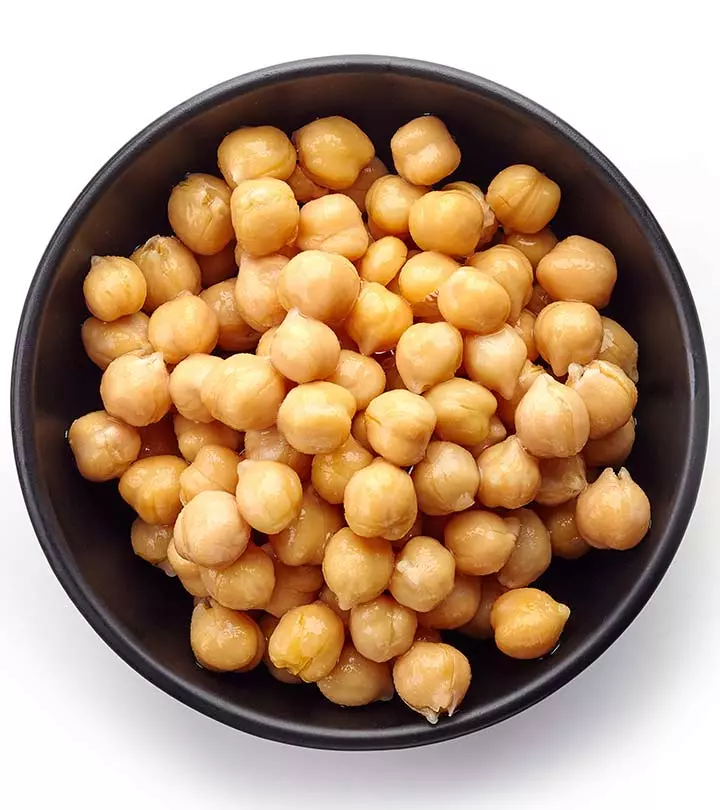
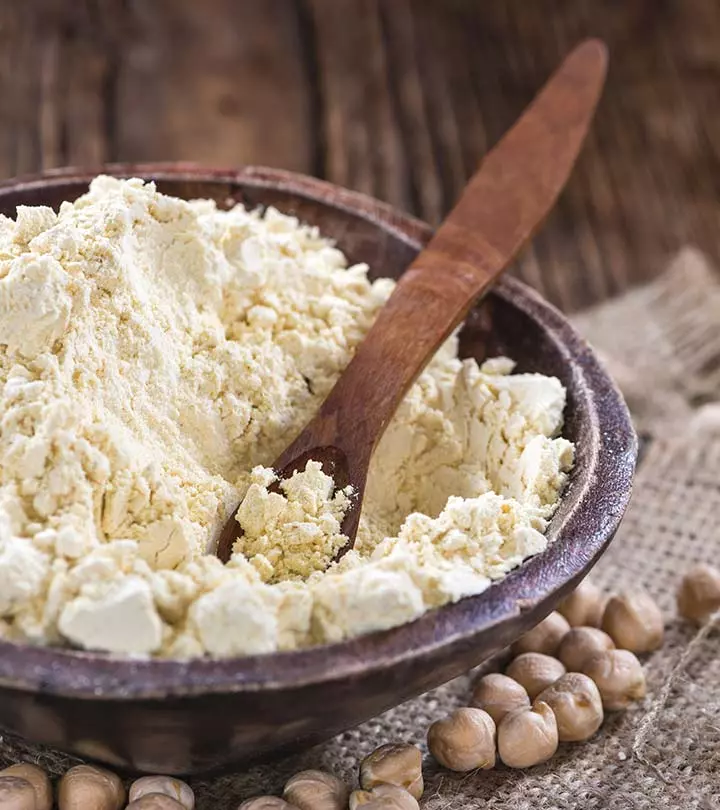
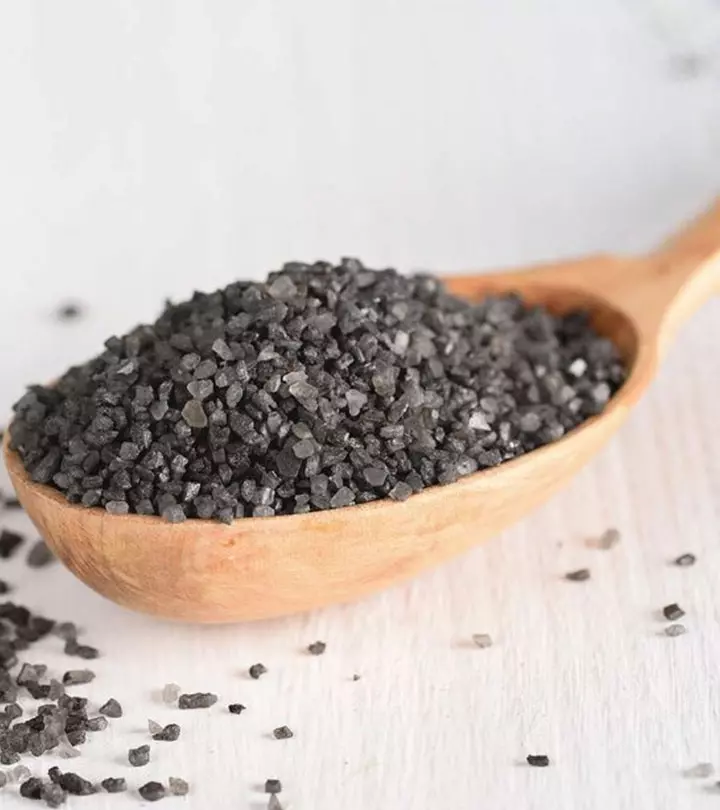
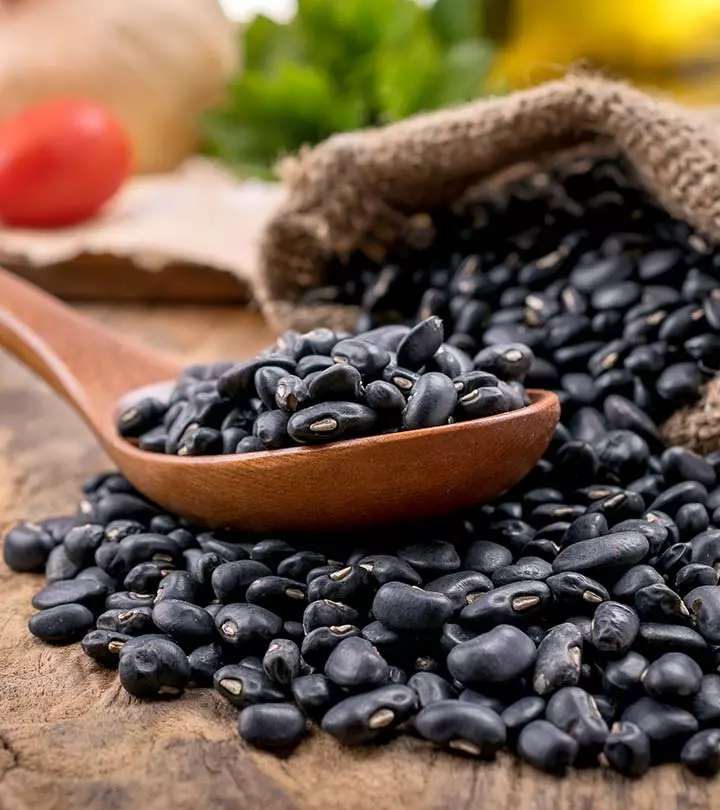
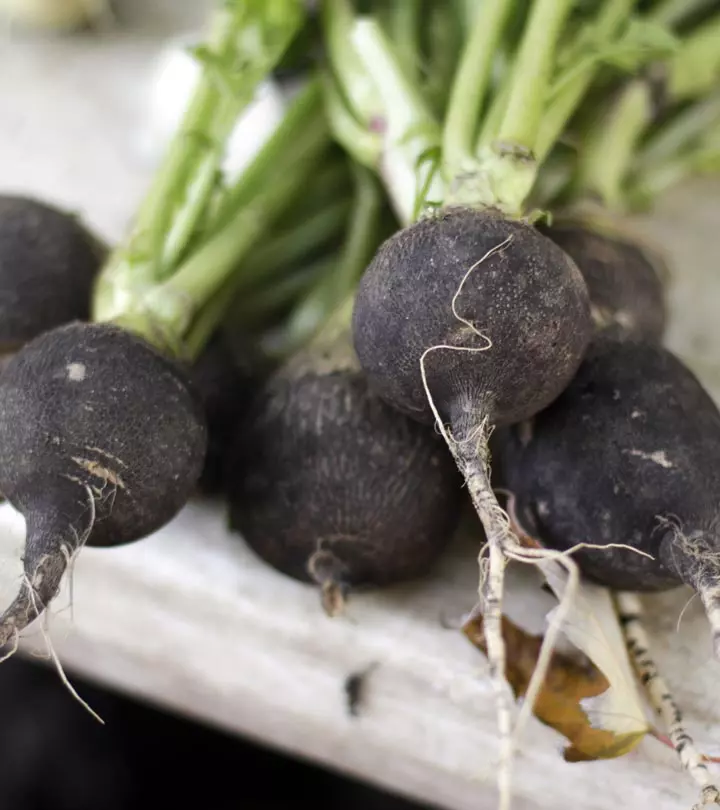
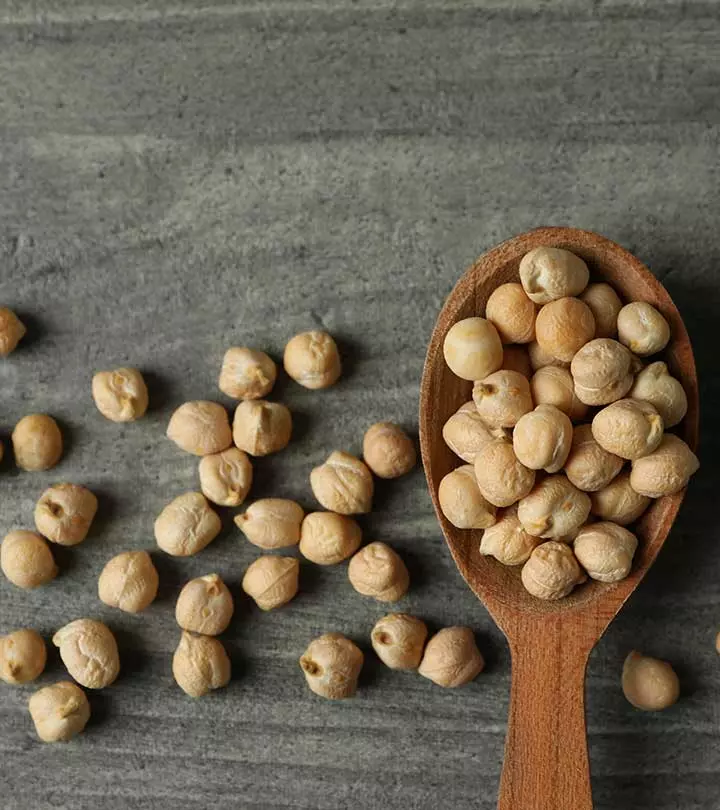
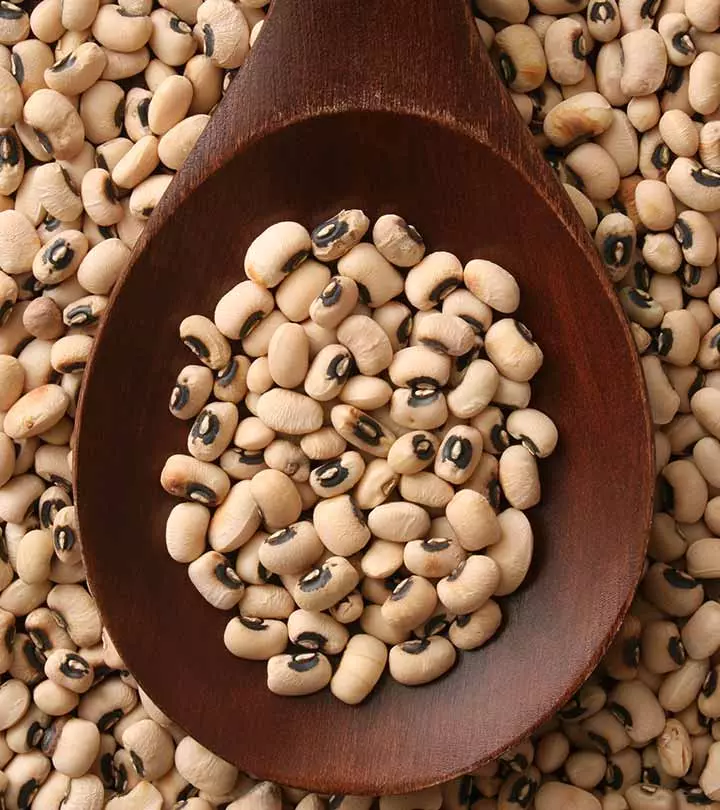
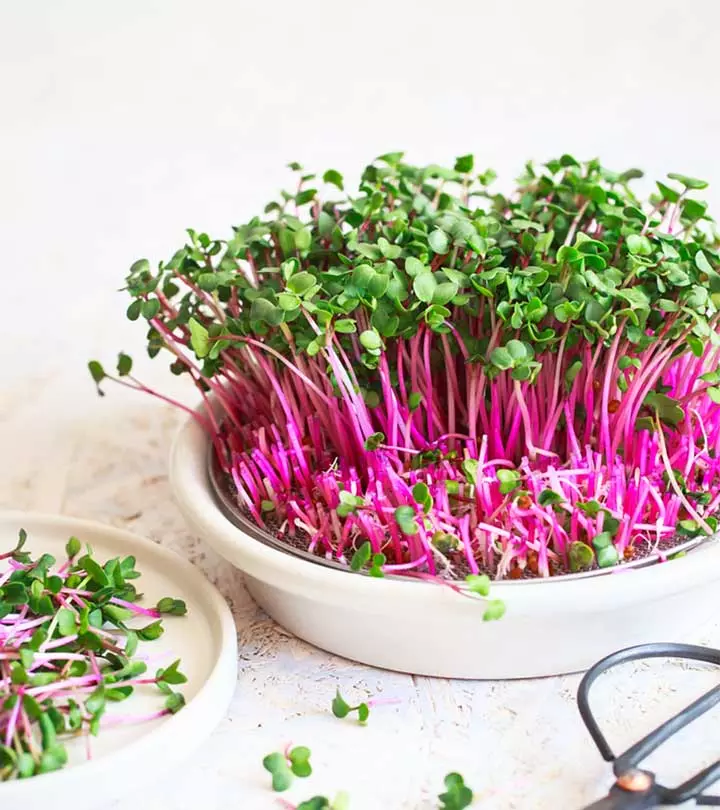
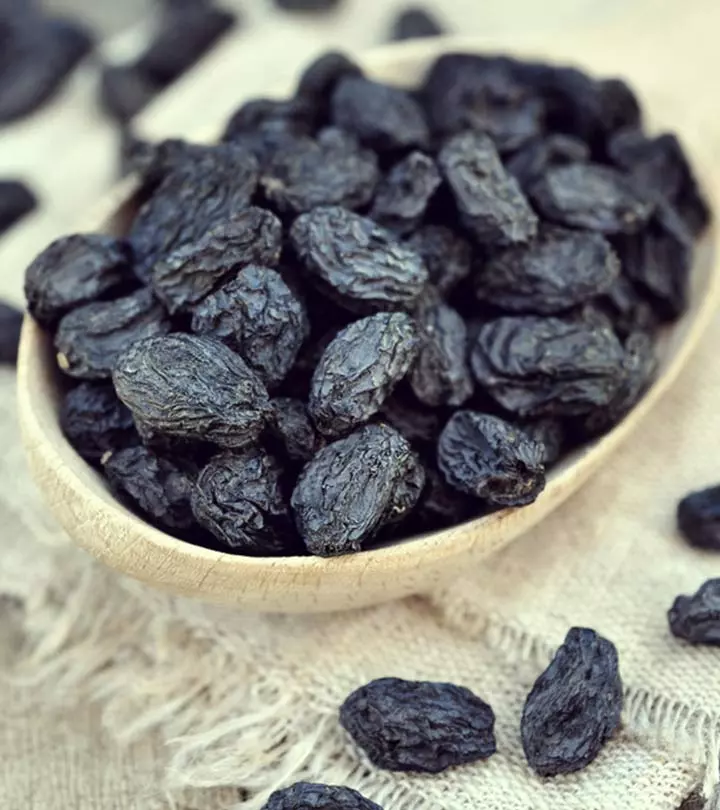
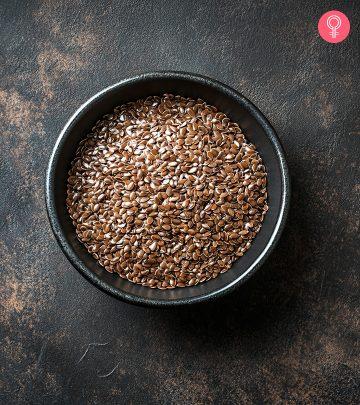
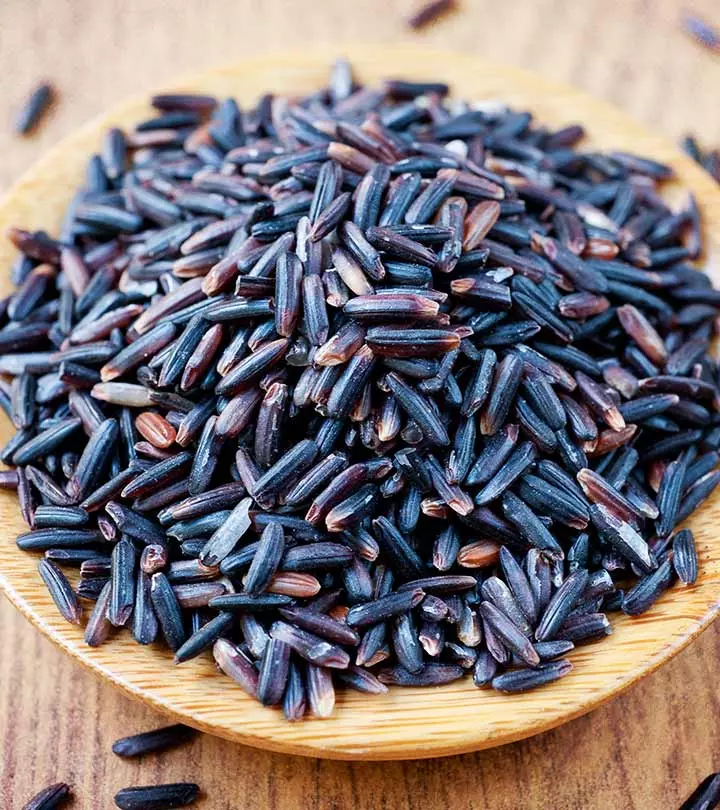

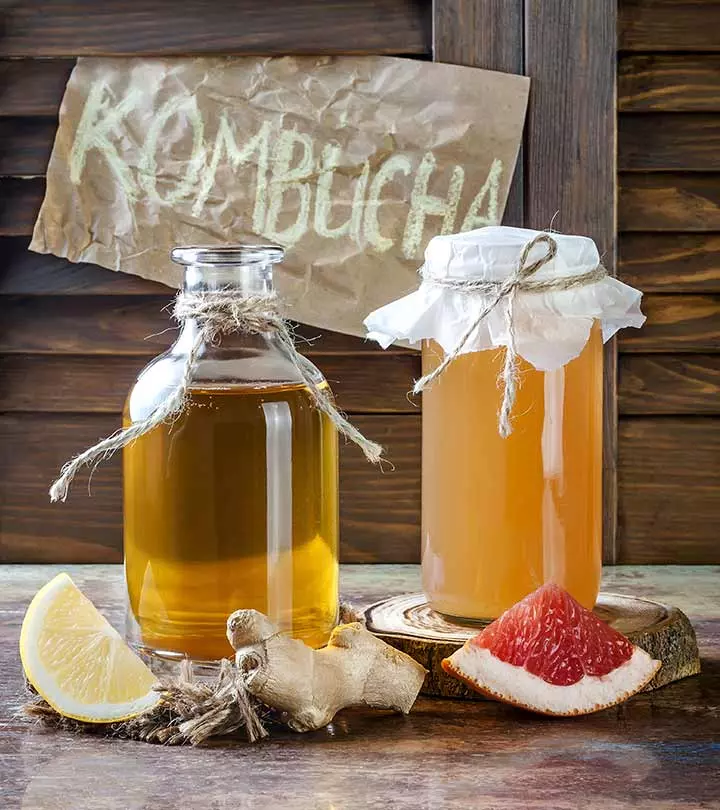
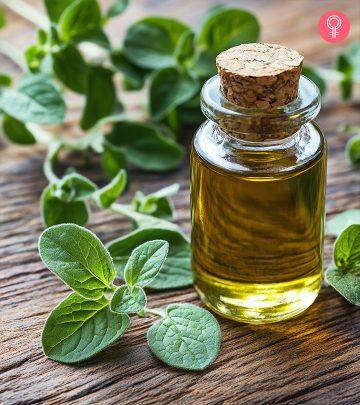
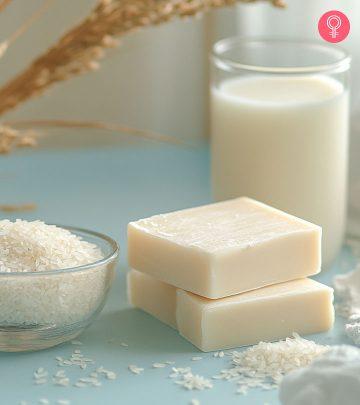
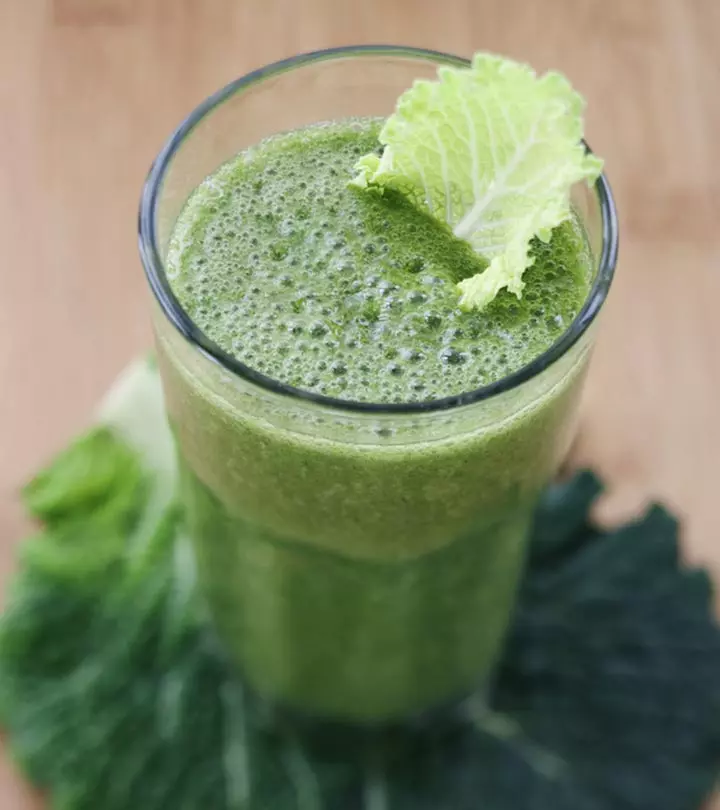
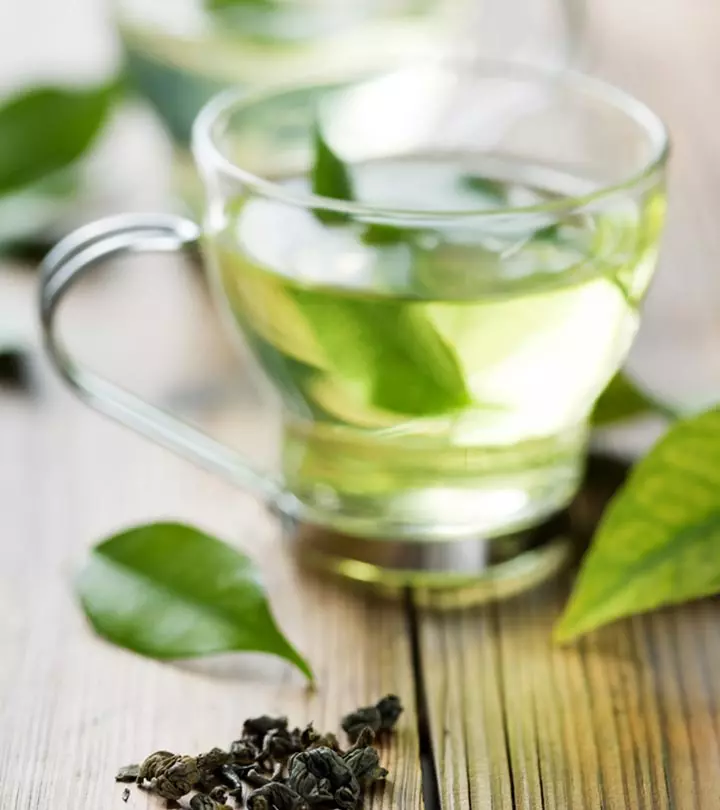
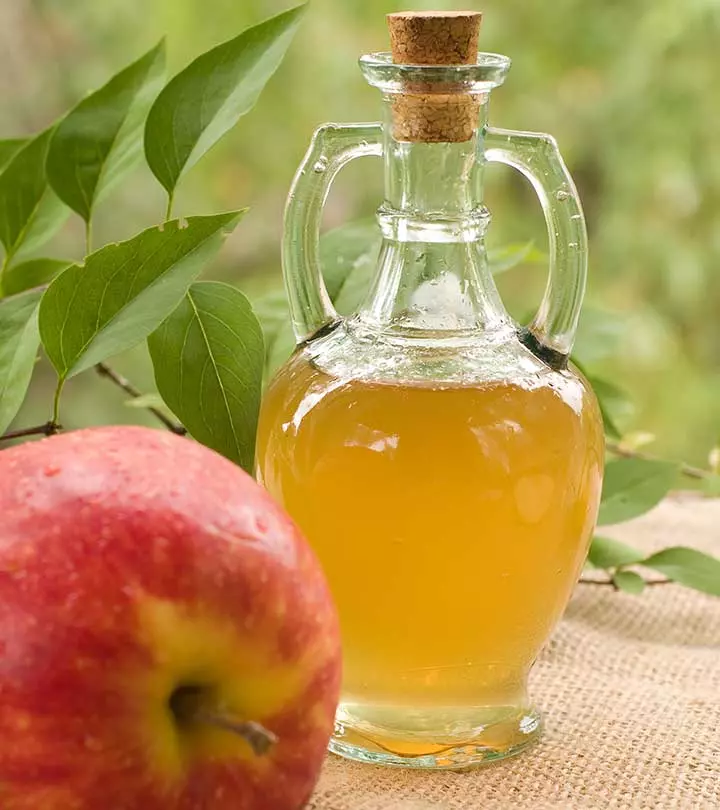
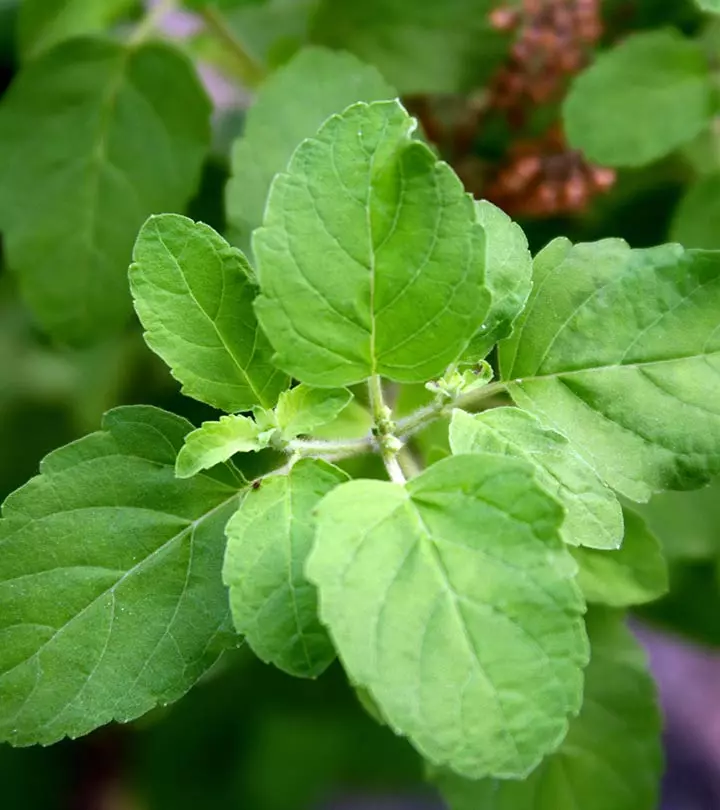
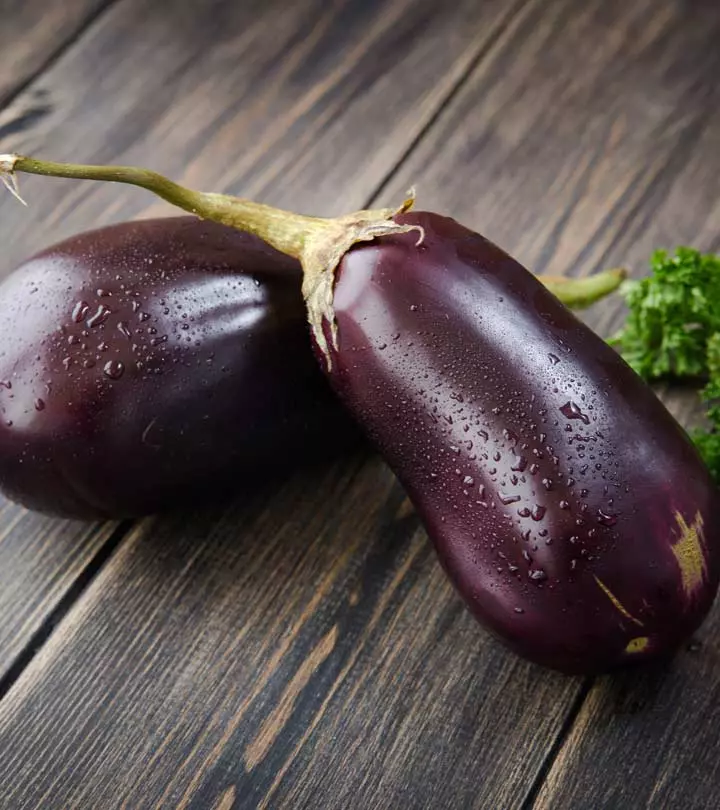
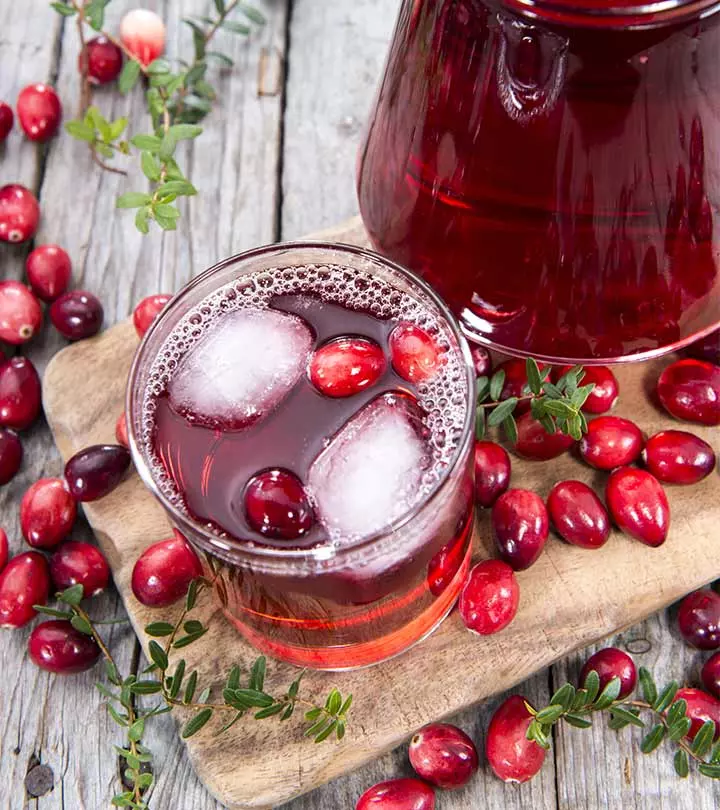
Community Experiences
Join the conversation and become a part of our empowering community! Share your stories, experiences, and insights to connect with other beauty, lifestyle, and health enthusiasts.